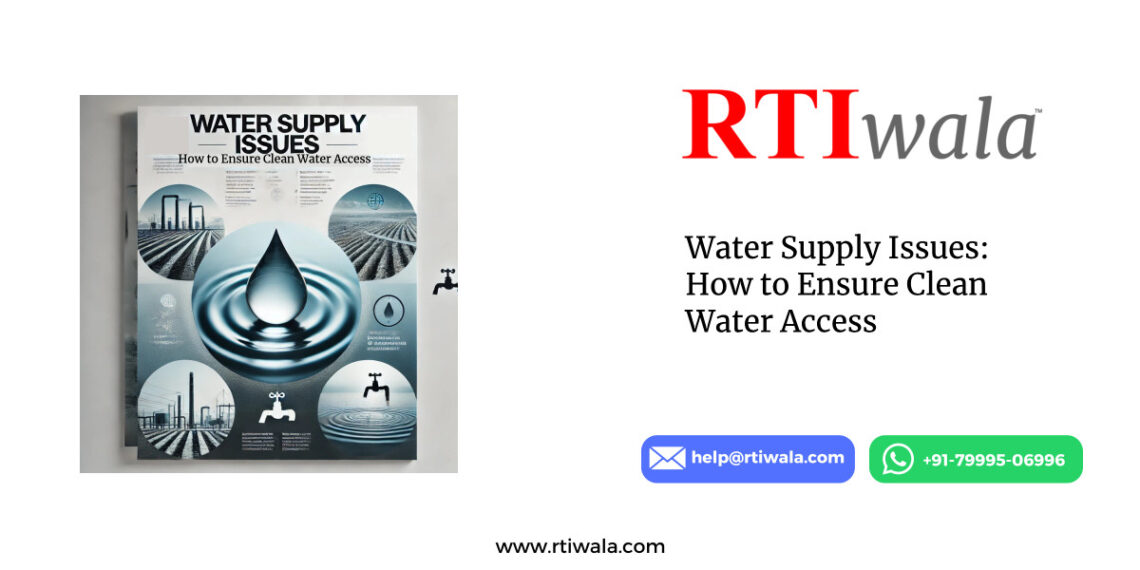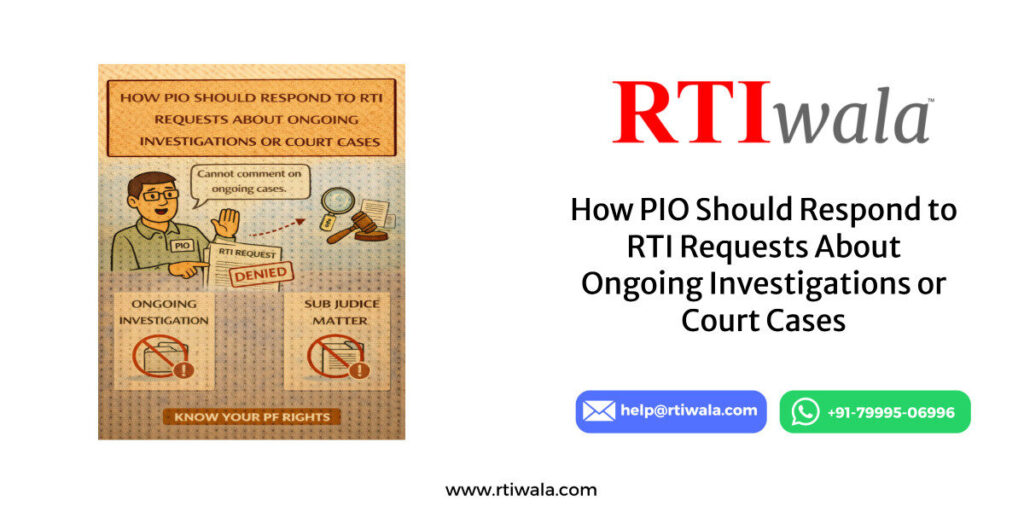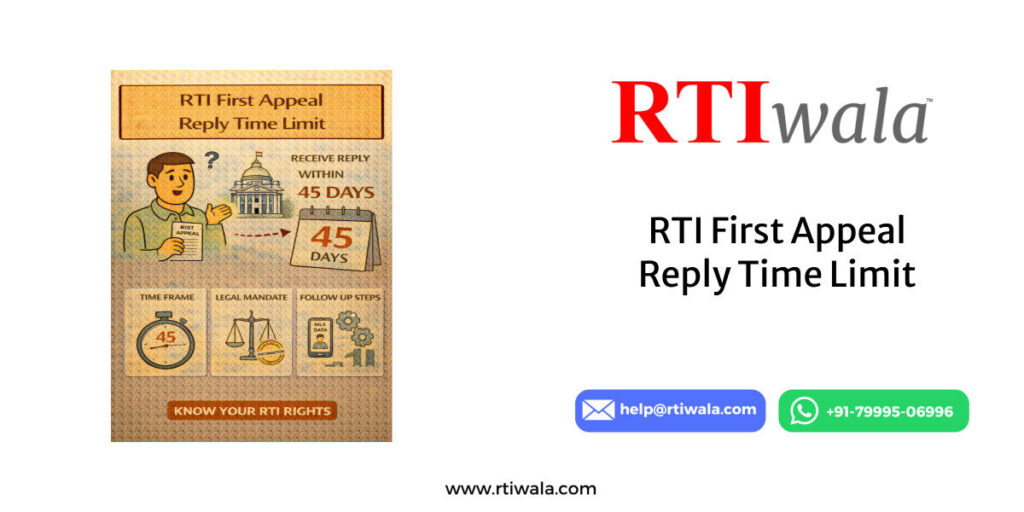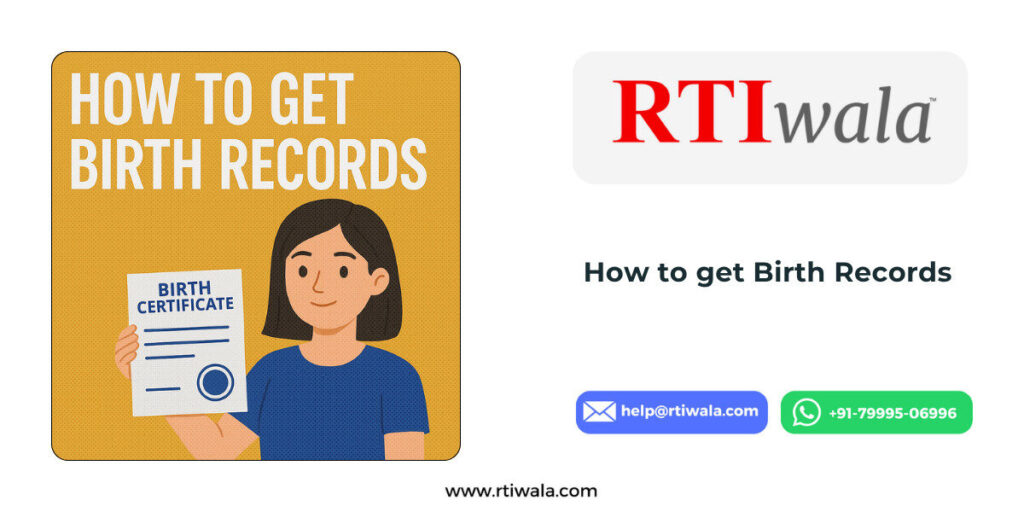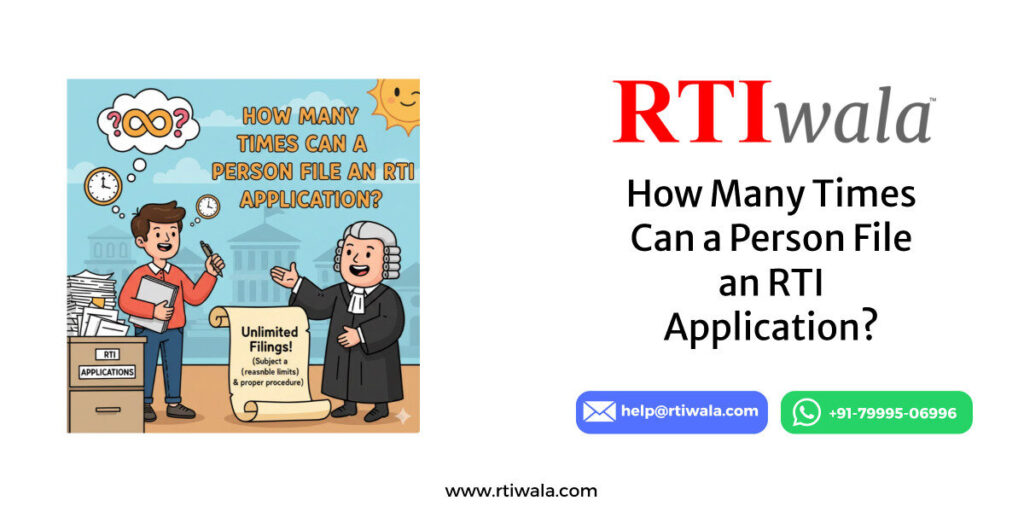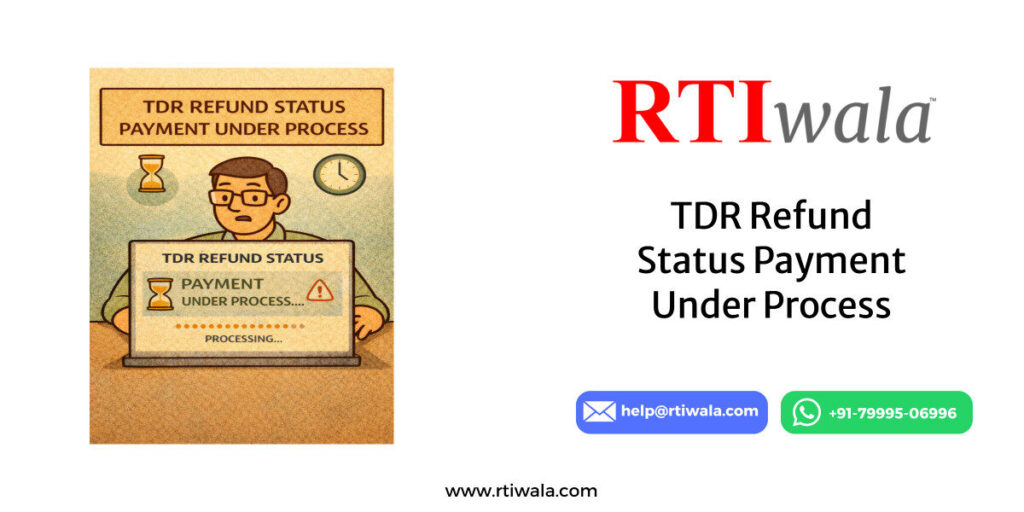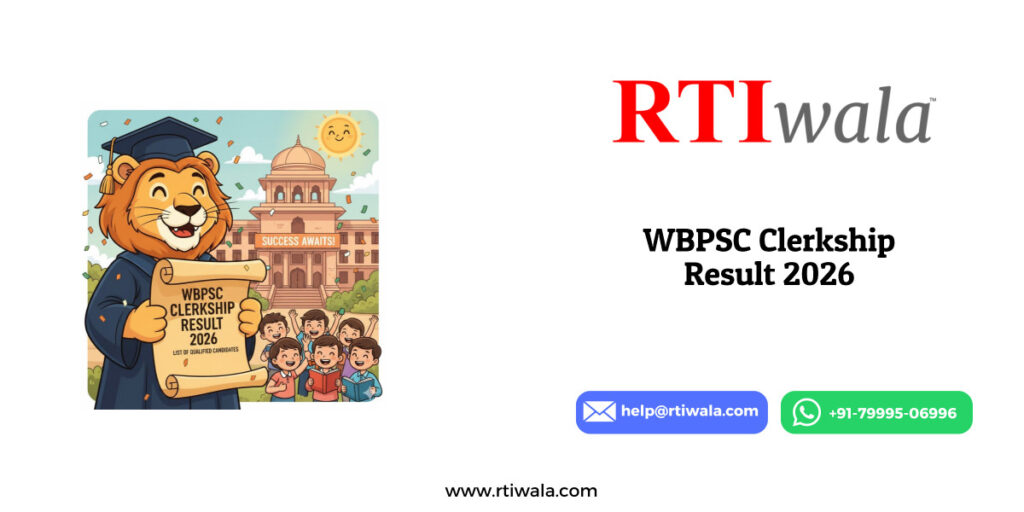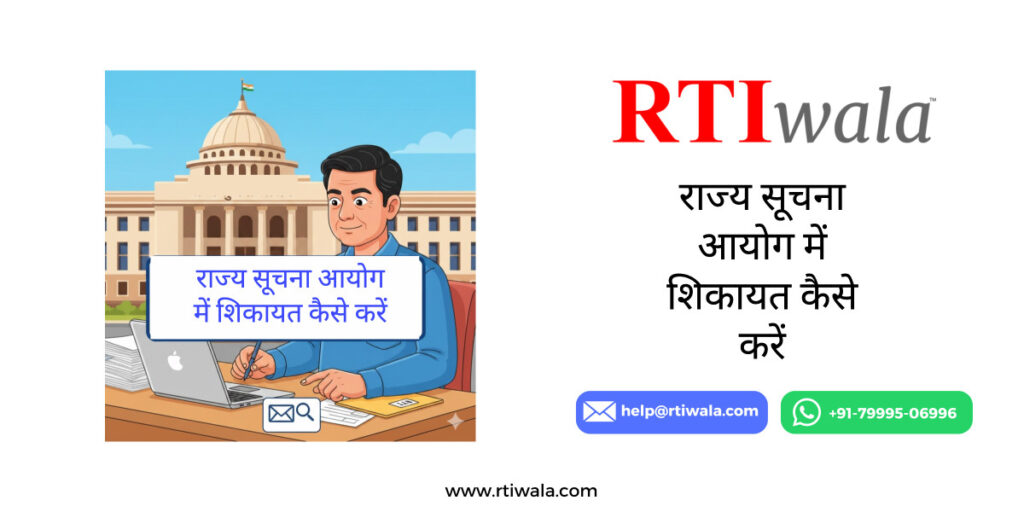Introduction
Access to clean water is a basic human right, yet many communities face issues such as irregular water supply, contamination, or lack of access altogether. Efficient water supply management is crucial for health, sanitation, and overall well-being. If you’re experiencing problems with your water supply, knowing how to file complaints and demand accountability can make a significant difference. This guide explains the common water supply issues, how to address them, and the role of tools like RTI (Right to Information) in ensuring access to clean water.
Common Water Supply Issues
- Irregular Supply
- Limited or inconsistent water supply in urban and rural areas.
- Water Contamination
- Contaminants like sewage, chemicals, or industrial waste affecting water quality.
- Pipeline Leaks and Breakages
- Loss of water due to outdated infrastructure or unattended pipeline damage.
- Low Pressure
- Inadequate water flow affecting households, especially in multi-story buildings.
- Inequitable Distribution
- Priority given to certain areas, leaving others with limited access.
- Billing Issues
- Unexplained surcharges or faulty meters leading to inflated bills.
How to File Complaints About Water Supply
Step 1: Identify the Relevant Authority
- Most cities have a Water Board or Municipal Corporation responsible for water supply management.
- Examples:
- Delhi Jal Board (DJB) for Delhi.
- Bangalore Water Supply and Sewerage Board (BWSSB) for Bengaluru.
Step 2: Gather Details
- Note the nature of the issue (e.g., contamination, irregular supply, leakage).
- Record relevant information like location, duration of the problem, and supporting evidence (e.g., photographs or videos).
Step 3: Contact the Helpline or Lodge an Online Complaint
- Use official helpline numbers or online portals to file complaints. Examples include:
- Delhi Jal Board Helpline: 1916
- BWSSB Complaint Portal: bwssb.gov.in
- Most water boards have mobile apps for easy complaint registration and tracking.
Step 4: Submit a Written Complaint (If Necessary)
- If the issue persists, visit the office of the water board or municipal corporation and submit a formal complaint.
- Include a clear description of the issue, location, and contact details.
Step 5: Escalate the Matter
- If your complaint is unresolved, escalate it to higher authorities, such as:
- District Collector or Municipal Commissioner.
- State Water Resources Department.
How to Ensure Clean Water Access
- Regular Testing
- Test the water quality periodically using home testing kits or by contacting the water board.
- Report Contamination Immediately
- Notify authorities as soon as you detect contamination in the water supply.
- Community Action
- Collaborate with local residents to raise collective complaints for quicker action.
- Demand Transparency
- Seek information on water treatment processes and quality standards through RTI.
- Promote Conservation
- Advocate for rainwater harvesting, waste water recycling, and efficient water usage.
Legal Framework Supporting Clean Water Access
- Article 21 of the Indian Constitution
- Recognizes the right to clean water as part of the right to life.
- Water (Prevention and Control of Pollution) Act, 1974
- Regulates water pollution and ensures the maintenance of water quality.
- Consumer Protection Act, 2019
- Protects citizens from inadequate or substandard water supply services.
Role of RTI in Addressing Water Supply Issues
The Right to Information (RTI) Act empowers citizens to seek transparency and accountability from authorities. Here’s how RTI can help:
- Inquire About Supply Details
- File RTI to seek information about water supply schedules and distribution mechanisms.
- Track Complaint Resolutions
- Use RTI to follow up on unresolved complaints or delayed action.
- Monitor Fund Utilization
- Request details on the funds allocated and spent on water infrastructure and maintenance.
- Verify Water Quality Standards
- Seek information about water testing reports and treatment processes.
- Expose Corruption or Negligence
- Highlight misuse of resources or inefficiencies in water management through RTI.
How RTIwala Can Help
If you face challenges in resolving water supply issues or need to ensure transparency, RTIwala provides expert assistance:
- File RTI Online: Demand accountability from water boards or municipal corporations.
- Anonymous RTI: Address sensitive issues while maintaining your privacy.
- Custom Drafting: Get professionally crafted RTI applications tailored to your concerns.
- Follow-Up Support: Ensure timely responses and action from authorities.
RTIwala Service Promotion
Resolve your water supply issues with RTIwala trusted services:
Expert Consultation: Get personalized advice on water supply grievances.
Online RTI: File RTI to seek transparency in water supply management.
Anonymous RTI: Protect your identity while addressing concerns.
Custom Drafting: Tailored RTI applications for impactful outcomes.
Products: Explore RTIwala services to ensure clean water access.
Take action today with RTIwala and ensure your right to clean water is upheld.












































